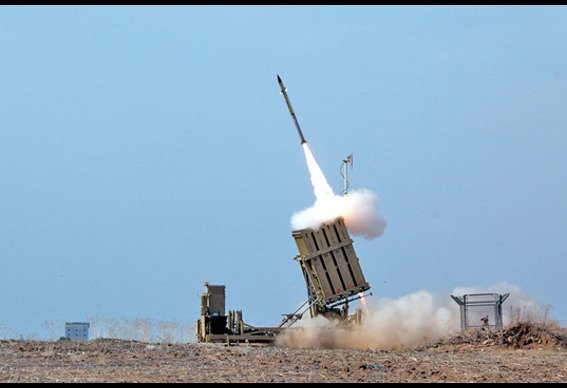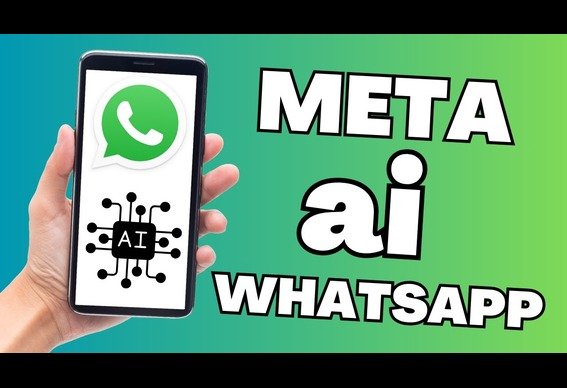
The Future of Artificial intelligence in everyday life
Not long ago, people only thought of artificial intelligence (AI) as something they read about in science fiction stories. Today, Artificial Intelligence is an integral part of our lives, and its role is only set to expand in the future. In this article, we will explore how AI is poised to improve our lives, why it’s so crucial in the modern world, its impact on human life, the ongoing debate about AI replacing humans, its ethical considerations, and the challenges and concerns associated with its widespread adoption.
How Will Artificial Intelligence Improve Our Lives?
Artificial Intelligence is already making significant strides in enhancing our daily experiences. From the personal assistants on our smartphones to the recommendation algorithms on streaming platforms, AI is constantly working in the background to streamline and personalize our interactions with technology.
One of the most notable areas where Artificial Intelligence is making a difference is healthcare. Artificial Intelligence -powered diagnostic tools can analyze medical data faster and more accurately than human doctors, potentially leading to earlier disease detection and more effective treatments. In the future, AI-driven technologies may revolutionize drug discovery and treatment strategies, offering hope for better patient outcomes.
Why is Artificial Intelligence Important Nowadays?
The significance of Artificial Intelligence in today’s world is really, really big. AI-driven automation is increasing efficiency in various industries, from manufacturing to customer service. It is helping businesses make data-driven decisions and optimize operations. AI is also at the forefront of scientific research, enabling the analysis of massive datasets that would be impossible to process manually.
Furthermore, AI plays a crucial role in addressing global challenges such as climate change. Machine learning algorithms are being used to predict climate patterns and develop sustainable solutions, making AI a key player in our efforts to protect the environment.
How Does Artificial Intelligence Affect Human Life?
Artificial Intelligence is changing how we do things, like how we live, work, and connect with others. In education, AI-powered tools are personalizing learning experiences, adapting to individual student needs, and providing educators with valuable insights to improve teaching methods. In the workplace, automation and AI-driven software are streamlining tasks and increasing productivity.
Transportation is another domain where AI is making an impact. Self-driving cars are becoming a reality, potentially reducing accidents and traffic congestion. AI-driven navigation systems optimize routes, saving both time and fuel.
Will Artificial Intelligence Replace Humans?
The fear that AI will replace humans in the workforce is a common concern. While AI can automate many tasks, it is unlikely to replace the creativity, emotional intelligence, and complex problem-solving abilities of humans. Instead, AI is more likely to augment human capabilities, allowing us to focus on higher-level tasks that require empathy, critical thinking, and innovation.
In fields like healthcare, AI can assist medical professionals but cannot replace the expertise and judgment of doctors. The important thing is to strike a proper balance between people working with AI.
Is Artificial Intelligence Good or Bad?
The question of whether AI is good or bad is a complex and ongoing debate. AI itself is neither inherently good nor bad; it depends on how it is used. Ethical considerations are paramount when developing and deploying AI systems.
AI can be a force for good when it is used to improve healthcare, optimize transportation, enhance education, and address pressing global challenges. However, it can also pose risks when it comes to privacy, bias in decision-making algorithms, and job displacement.
Artificial Intelligence in Education
Al is changing education by making learning experience special for each student. Adaptive learning platforms use AI to identify each student’s strengths and weaknesses, allowing educators to provide personalized support. AI-driven chatbots are available to answer student queries 24/7, enhancing the learning experience beyond traditional classroom hours.
Artificial Intelligence in Healthcare
In healthcare, AI is helping diagnose diseases, analyze medical images, and predict patient outcomes. Machine learning models can process vast amounts of data, leading to more accurate diagnoses and personalized treatment plans. Telemedicine platforms powered by AI are expanding access to healthcare services, especially in remote areas.
Artificial Intelligence in Transportation
Self-driving cars are a prime example of AI’s impact on transportation. These vehicles rely on sensors and smart computer programs (Al algorithms) to drive safely on roads. Traffic management systems that use Al make traffic move better, which means less traffic jams and pollution. Additionally, ride-sharing apps use AI to match drivers with passengers efficiently.
Artificial Intelligence in the Workplace
In the workplace, AI is automating routine tasks, freeing up employees to focus on more creative and strategic aspects of their jobs. Virtual assistants and chatbots are streamlining customer support and improving employee efficiency. AI-powered analytics are aiding in data-driven decision-making, leading to better business outcomes.
Ethical Considerations
The ethical questions about AI are extremely significant. Bias in AI algorithms, data privacy concerns, and job displacement are some of the key ethical challenges. It is crucial to develop AI systems that are fair, transparent, and accountable. Regulations and guidelines are being developed to ensure that AI is used responsibly.
The Future of Artificial Intelligence : Collaboration, Not Replacement
As we delve deeper into the future of artificial intelligence, it becomes increasingly evident that AI’s role is not to replace humans but to collaborate with them. We are entering an era of human-AI partnership, where machines and algorithms assist and augment human capabilities rather than supplant them.
In the field of creative arts, AI is assisting musicians, writers, and artists in generating new content and exploring novel ideas. AI algorithms can analyze vast datasets of music, literature, or visual art to provide inspiration and suggest creative directions. This collaboration between human creativity and AI innovation opens up new horizons in the world of artistic expression.
Moreover, AI-driven solutions are proving invaluable in addressing some of society’s most pressing challenges. For instance, AI is playing a pivotal role in climate modeling and predicting natural disasters, helping us devise strategies to mitigate the impact of climate change. Additionally, AI-powered robotic systems are assisting in disaster response efforts by navigating treacherous terrains and locating survivors in the aftermath of earthquakes, hurricanes, and other catastrophes.
In agriculture, AI-driven precision farming techniques are optimizing crop yields, reducing resource consumption, and ensuring food security for a growing global population. By analyzing soil data, weather patterns, and crop health metrics, AI can guide farmers in making informed decisions about planting, irrigation, and harvesting, ultimately leading to sustainable and efficient farming practices.
Ethical Considerations and Responsible Artificial Intelligence
As AI becomes more deeply integrated into our daily lives, the importance of ethical considerations cannot be overstated. The risk of algorithmic bias, which can perpetuate discrimination and inequality, is a significant concern. Developers and organizations must prioritize fairness, transparency, and accountability when designing AI systems. Regulatory bodies are also acting to ensure that AI technologies adhere to ethical standards.
Additionally, data privacy is a critical aspect of AI implementation. As AI relies on vast amounts of data for training and decision-making, it is essential to safeguard individuals’ privacy and protect sensitive information. Stricter regulations and robust cybersecurity measures are essential to address these concerns.
Challenges and Concerns: The Path Forward
While AI holds immense promise, it also presents formidable challenges and concerns. The displacement of certain jobs due to automation is a reality that cannot be ignored. However, with proactive measures such as reskilling and upskilling programs, societies can adapt to the changing employment landscape and harness the potential of AI to create new opportunities.
Moreover, addressing the potential misuse of AI for malicious purposes, such as deep fake technology, requires constant vigilance and international collaboration. Ensuring that AI development is guided by ethical principles and international agreements will be crucial in preventing its misuse.
In conclusion, the future of artificial intelligence in everyday life is multifaceted and exciting. Artificial Intelligence ‘s role in enhancing our lives, addressing global challenges, and revolutionizing industries is undeniable. However, this transformation must be accompanied by ethical considerations, responsible AI development, and strategies to mitigate the challenges it poses. By striking the right balance between harnessing Artificial Intelligence ‘s potential and safeguarding our values, we can ensure that the future of AI is a bright and collaborative one, where machines and humans collaborate to build a better world for everyone.
Read Also : The Creator AI Robots Spotted in London









5 thoughts on “The Future of Artificial intelligence in everyday life”